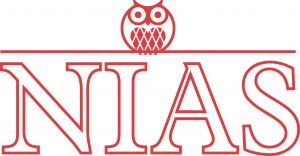Workshop report
Mykola Makhortykh wrote a report on the workshop “Trauma Studies in the Digital Age”. In this report, he summarized the main ideas, conclusion, and recommendations for further researched that originated during the round table discussion and the two workshop days.
Workshop programme
DAY 1: Round table “Trauma Studies in the Digital Age”
venue: Belle van Zuylenzaal, Amsterdam University Library, Singel 424, Amsterdam
when: 18:00 – 19:00
The round table will be followed by drinks from 19:00 – 20:00.
DAY 2 & 3- Workshop
venue: Netherlands Institute for Advanced Studies (Nias)
when: 9:00 – 18:00
Read more in our programme or the abstracts and biographies.
Call for papers – CLOSED
May 10-12, 2017; NIAS – Netherlands Institute for Advanced Study in the Humanities and Social Sciences
Organizers: Anna Menyhért with Mykola Makhortykh and Michelle de Wit
The workshop is part of Anna Menyhért’s Marie Sklodowska Curie research project, supervised by Prof. Ellen Rutten at the University of Amsterdam. The MSCA project is titled “Trauma Studies in the Digital Age: The Impact of Social Media on Trauma Processing in Life Narratives and in Trauma Literature: the Case of Hungary” (TRAPRODIG). One of the goals of the project is to define and develop digital trauma studies as a new field, and focus on various ways of trauma processing as it happens in the digital era, in digital/social media. The workshop thus will discuss the emerging social phenomenon of digital trauma processing, and it will advance the growing new field of digital trauma studies, which is located at the intersection of digital memory studies, cultural trauma studies, and digital media studies. The workshop will examine the following questions:
CfP
Will digital environments change the nature of trauma processing both on the personal and collective level?
What forms this foreseeable change will take in different cultural and societal frameworks, and as a transcultural consequence of migration?
Will changes be noticeable in terms of obliteration of differences in trauma processing in democratic and totalitarian systems of governance?
Besides full-length conference papers we are also looking for shorter think pieces that will stimulate discussion. We would like to develop the workshop into a very inspirational brainstorming session, with more time for discussion than usually there is at conferences. Submissions are invited to engage in the four main interrelated subthemes of the workshop that attempt to cover areas where digital trauma processing occurs and which can be analyzed in a humanities/cultural studies/literary studies framework; but any other topics related to trauma in the digital age are welcome.
1) Personal trauma and digital identity in relation to social media as an online community: coping with illness, loss, grief, virtual cemeteries, the role of online support groups;
2) Transcultural trauma related to migration, forced migration, cultural shock and transnational (online) writing related to literary texts, blogs and Facebook groups;
3) Social media and the painful past: analyzing collective trauma processing online as well as collective memory and national identity formation; with a special (but not exclusive) focus on Post-Soviet countries, the East-Central European region and Hungary;
4) Literary (printed, offline) texts and (digital) trauma processing, referring to online reading groups, reviews in personal blogs, literary websites interpreting trauma texts.
Theoretical background: out of the three phases of recovering from Post Traumatic Stress Disorder as defined in the psychological field (1. reconstituting the survivor’s feeling of security; 2. reconstructing the trauma narrative; 3. re-establishing the relationships of the survivor, integrating him/her in the community), in the pre-digital era mainly the second phase was of interest for literary and cultural trauma studies, that is, the interpretation of texts produced during trauma processing and recovery and the investigation of (adequate) reading strategies. The digital era elevated the third phase further into the public sphere, with instant response and dialogue possible in social media. Sharing traumatic experiences online (in blogs, social networking groups) and reacting to them (in comments and chat functions) eliminates the element of silence thought to be inherent in trauma: on one hand as its basic characteristic feature, meaning the victim is unable to speak about it, on the other hand silencing as the cause of secondary traumatization, when others do not or are not able to listen to the victim, or as an official oppressive practice by a totalitarian regime. As silence has been considered a crucial element in definitions of trauma, this change in focus has the potential to redefine trauma and reassess the field of trauma studies within a framework of digital memory and digital media studies. As a consequence, digitally mediated trauma processing could be the way to clear (ideologically) blocked avenues (“to thaw frozen currents”) to the traumatic past and induce social and cultural change, or at least to allow for the existence of parallel or multiple versions of traumatic history: official, rigid versions, determined by oppressive past and present-day ideologies, as opposed to other versions, created by communities, the arts and civil society, that are versatile and mobile, emotionally active and capable of activating trauma processing reactions.
Please send abstracts (300 words) for presentations together with a short bio (150 words) to Michelle de Wit before the 12th March 2017. Please remark whether you are submitting the abstract of a 20 minute full paper or of a 10-15 minute think piece.
Email: traprodigconference@gmail.com
Notifications of acceptance will be distributed on 20th March 2017; limited financial assistance for accomodation and travel costs can be available.
The workshop is supported by the peer-reviewed journals Environment, Space and Place and Digital Icons with the prospect of publishing selected papers in the journals.
The organizers are planning a trauma-related roundtable discussion to accompany the workshop on the evening of 10th May, followed by a reception. Details will follow soon.
We look forward to seeing you in Amsterdam!



